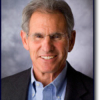Jon Kabat-Zinn

Jon Kabat-Zinn
Jon Kabat-Zinnis Professor of Medicine Emeritus and creator of the Stress Reduction Clinic and the Center for Mindfulness in Medicine, Health Care, and Society at the University of Massachusetts Medical School. Kabat-Zinn was a student of Buddhist teachers such as Thich Nhat Hanh and Zen Master Seung Sahn and a founding member of Cambridge Zen Center. His practice of yoga and studies with Buddhist teachers led him to integrate their teachings with those of science. He teaches mindfulness, which he...
NationalityAmerican
ProfessionEducator
Date of Birth5 June 1944
CountryUnited States of America
The awareness is not part of the darkness or the pain; it holds the pain, and knows it, so it has to be more fundamental, and closer to what is healthy and strong and golden within you.
Dying without actually fully living, without waking up to our lives while we have the chance, is an ongoing and significant risk.
Practice sharing the fullness of your being, your best self, your enthusiasm, your vitality, your spirit, your trust, your openness, above all, your presence. Share it with yourself, with your family, with the world.
Awareness is not the same as thought. It lies beyond thinking, although it makes no use of thinking, honoring it's value and it's power. Awareness is more like a vessel which can hold and contain our thinking, helping us to see and know our thought as thought rather than getting caught up in them as reality.
No one can listen to your body for you... To grow and heal, you have to take responsibility for listening to it yourself.
Perhaps we just need little reminders from time to time that we are already dignified, deserving, worthy.
When you pay attention to boredom it gets unbelievably interesting.
Too much of the education system orients students toward becoming better thinkers, but there is almost no focus on our capacity to pay attention and cultivate awareness.
Voluntary simplicity means going fewer places in one day rather than more, seeing less so I can see more, doing less so I can do more, acquiring less so I can have more.
We take care of the future best by taking care of the present now.
Patience is a form of wisdom. It demonstrates that we understand and accept the fact that sometimes things must unfold in their own time.
It is a form of violence, to not see a being for who he or she really is. You think, "Oh, that's my son." But the lens, "my son," completely obliterates the multi- dimensions of that being. Maybe you only see your disappointments in that child, or you aspirations for that child, but that's not the child.
Mindfulness means paying attention in a particular way: on purpose, in the present moment, and non-judgmentally.
Arriving someplace more desirable at some future time is an illusion. This is it.